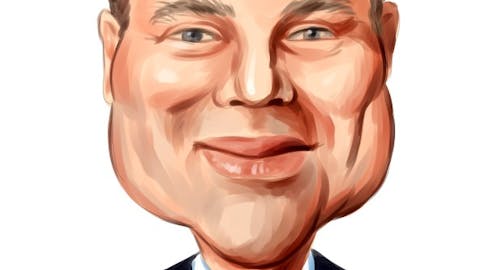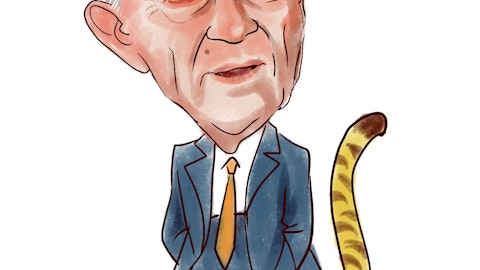Billionaire David Einhorn of Greenlight Capital Re, Ltd. (NASDAQ:GLRE) is one of the most closely followed hedge fund managers in the world. In mid May, his fund filed its 13F with the SEC, disclosing many of its long equity positions in U.S. stocks as of the end of March. Even though the information in these is a bit old, we have shown that 13Fs can be used to develop profitable investment strategies (for example, by our reckoning the most popular small cap stocks among hedge funds generate an average excess return of 18 percentage points per year). In addition, investors can always treat movements that these managers made during the previous quarter as initial ideas, going on to further research any which seem interesting on their own merits. We have gone through Einhorn’s most recent 13F compared to previous filings (see what Greenlight has owned over time) and here are three things we noticed that we was up to:
Loyal to Apple. We’ve noticed when looking at a number of billionaires’ filings that they sold Apple Inc. (NASDAQ:AAPL); this group includes David Tepper’s Appaloosa Management (find Appaloosa’s favorite stocks) and legendary investor Julian Robertson (research stocks Robertson owns). Einhorn was buying, however, and by the end of March his fund owned 2.4 million shares- a position worth over $1 billion at the time. In its most recent quarter, Apple Inc. (NASDAQ:AAPL)’s earnings dropped by 18% compared to the same period in the previous fiscal year even as revenue rose by 11% as investor fears of lower margins came true. Currently, Apple Inc. (NASDAQ:AAPL) is valued at 10 times its trailing earnings (with cash comprising a significant share of the market cap). According to our database, Apple Inc. (NASDAQ:AAPL) actually regained the title of the most popular stock among hedge funds during the first quarter of 2013 (see the rest of the top three).

Some profit taking. Einhorn had been buying Computer Sciences Corporation (NYSE:CSC) in the first several months of 2012; it is currently up 41% from the end of September, and about 80% from the end of June. Delphi Automotive PLC (NYSE:DLPH) has more than doubled since the end of 2011, when Greenlight Capital Re, Ltd. (NASDAQ:GLRE) first reported a large stake. The fund trimmed its holdings of each by about 25% between January and March. Delphi Automotive PLC (NYSE:DLPH), a $15 billion market cap auto parts company specializing in electrical, electronic, and powertrain components, has been seeing weaker business conditions but Wall Street analysts are projecting high enough earnings growth that the five-year PEG ratio is only 0.6. Technology outsourcing and services provider Computer Sciences Corporation (NYSE:CSC) has been fairly stable in terms of its business, going by recent reports, and following the rise in price is just at the edge of value territory with trailing and forward P/Es in the 12-13 range.
We can understand why Greenlight Capital Re, Ltd. (NASDAQ:GLRE) is cashing out a bit at these two stocks- Computer Sciences has gotten to the point where it isn’t a clear value stock anymore, while in the case of Delphi it seems advisable to look at other auto parts companies or automakers which might be cheaper. We’re also not too excited about Microsoft Corporation (NASDAQ:MSFT), and at the very least it seems to be just getting into value territory by virtue of a favorable product cycle (though if Windows 8 sales pick up, or the company comes up with a plan to distribute more cash, it could be worth a look). Apple seems like at least a candidate for value status in our book, though it would have to slow its decline in earnings and it certainly seems risky for Einhorn to have increased his exposure to the stock as much as he did.
Disclosure: I own no shares of any stocks mentioned in this article.





